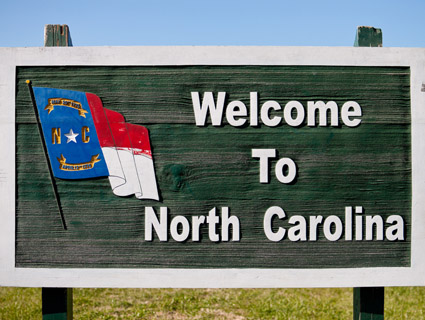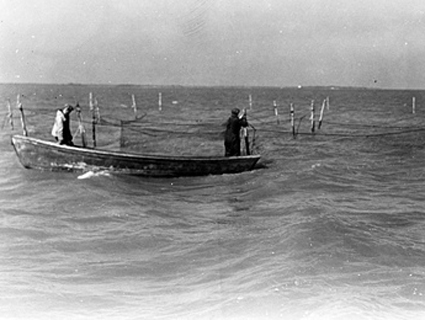
<a href="http://www.flickr.com/photos/30713600@N00/4140983038/">twicepix</a>/Flickr
In North Carolina, legislators are working to undo the progress their state has made on renewable energy.
Back in 2007, it was the first southern state to pass a renewable energy mandate. The law requires investor-owned utilities to draw 12.5 percent of their power from renewable sources by 2021. But House bill 298, introduced on Wednesday, would end that mandate altogether.
Let’s just savor, for a minute, this nugget about the bill’s sponsor, from the Charlotte Observer:
The bill’s leading sponsor, Republican Rep. Mike Hager, is a former Duke Energy engineer who has repeatedly said that energy sources for generating electricity should be chosen on a least-cost basis rather than being selected by government policy. The leading nonrenewable options are natural gas, coal and nuclear.
“I don’t think you should be subsidizing businesses into longevity,” Hager said. “I’ve had one or two tell me they’ll never get off subsidies. I’ll pay for them, my children will pay for them and my grandchildren will pay for them.”
Duke Energy, may I remind you, is the largest utility in the country, one that has received millions and millions in subsidies for fossil fuels over the years.
Greenpeace’s Connor Gibson points out that Hager’s bill resembles the “Electricity Freedom Act,” a piece of model legislation rolling back renewable energy mandates promoted by the American Legislative Exchange Council, the well-known public policy group uniting conservative lawmakers and corporate interests. Yes, Hager has a history of involvement with the organization.
Under its current law, the state has added clean energy-related jobs. Environmental Entrepreneurs, a program of the Natural Resources Defense Council, released a report recently finding that North Carolina announced more new clean energy and transportation projects than any other state in 2012. NRDC reports these projects were set to create 10,867 new jobs—more than in anywhere else besides California.








